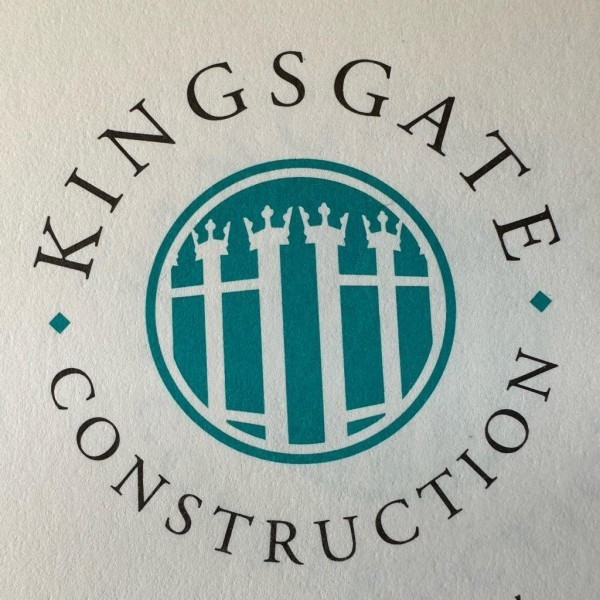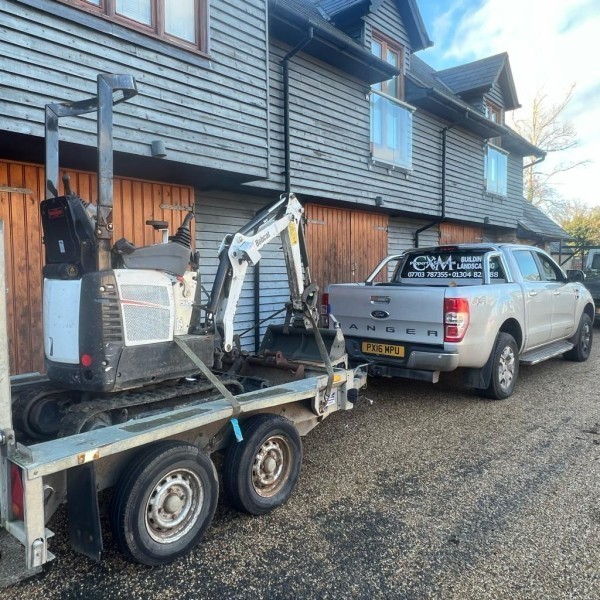Garage Conversions in Hythe
Search Garage Conversions in places nearby
- Garage Conversions in Ashford
- Garage Conversions in Broadstairs
- Garage Conversions in Canterbury
- Garage Conversions in Chatham
- Garage Conversions in Deal
- Garage Conversions in Dover
- Garage Conversions in Faversham
- Garage Conversions in Folkestone
- Garage Conversions in Gillingham
- Garage Conversions in Gravesend
- Garage Conversions in Herne Bay
- Garage Conversions in Lydd
- Garage Conversions in Maidstone
- Garage Conversions in Margate
- Garage Conversions in New Romney
- Garage Conversions in Northfleet
- Garage Conversions in Ramsgate
- Garage Conversions in Rochester
- Garage Conversions in Royal Tunbridge Wells
- Garage Conversions in Sandwich
Introduction to Garage Conversions in Hythe
Garage conversions in Hythe have become increasingly popular as homeowners seek to maximise their living space without the hassle of moving. By transforming an underutilised garage into a functional room, families can enjoy additional space tailored to their needs. Whether it's a new bedroom, home office, or playroom, the possibilities are endless. This article delves into the various aspects of garage conversions, offering insights and guidance for those considering this home improvement project.
Benefits of Garage Conversions
Converting a garage offers numerous advantages. Firstly, it increases the overall living space, providing more room for growing families or hobbies. Secondly, it can significantly boost the property's value, making it an attractive investment. Additionally, garage conversions are often more cost-effective than building an extension, as the basic structure is already in place. Lastly, they offer a sustainable way to enhance a home, reducing the need for new construction materials.
Increased Living Space
One of the most compelling reasons for a garage conversion is the additional living space it provides. This extra room can be customised to suit the homeowner's needs, whether it's a guest bedroom, a home gym, or a creative studio. The flexibility of garage conversions allows homeowners to adapt their living space as their needs change over time.
Boosting Property Value
A well-executed garage conversion can significantly increase a property's market value. Potential buyers often view additional living space as a major selling point, making the home more appealing. Moreover, a garage conversion can offer a higher return on investment compared to other home improvement projects.
Cost-Effective Solution
Compared to building a new extension, garage conversions are generally more affordable. The existing structure reduces the need for extensive construction work, saving both time and money. This makes garage conversions an attractive option for homeowners looking to enhance their living space without breaking the bank.
Planning and Regulations
Before embarking on a garage conversion, it's essential to understand the planning and regulatory requirements. In Hythe, as with many areas, certain permissions may be needed, depending on the scope of the project. It's crucial to consult with local authorities to ensure compliance with building codes and regulations.
Planning Permission
In many cases, garage conversions fall under permitted development rights, meaning planning permission may not be required. However, this is not always the case, especially if the conversion involves significant structural changes or if the property is in a conservation area. It's advisable to check with the local planning office to confirm whether permission is needed.
Building Regulations
Regardless of planning permission, garage conversions must comply with building regulations. These regulations ensure that the conversion is safe and energy-efficient. Key considerations include insulation, ventilation, fire safety, and structural integrity. Hiring a professional to oversee the project can help ensure compliance with these standards.
Design Considerations
Designing a garage conversion involves careful planning to make the most of the available space. From layout and lighting to insulation and flooring, each element plays a crucial role in creating a functional and comfortable room.
Layout and Functionality
The layout of the converted space should reflect its intended use. For instance, a home office might require built-in storage and ample desk space, while a bedroom would need room for a bed and wardrobe. It's important to consider how the space will be used and plan the layout accordingly.
Lighting and Ventilation
Good lighting and ventilation are essential for any living space. Natural light can be maximised by adding windows or skylights, while artificial lighting should be layered to create a warm and inviting atmosphere. Adequate ventilation is also crucial to prevent dampness and ensure air quality.
Insulation and Heating
Proper insulation is vital for maintaining a comfortable temperature in the converted space. This includes insulating walls, floors, and ceilings. Additionally, a suitable heating system should be installed to ensure the room is warm during colder months. Options include extending the central heating system or installing electric heaters.
Choosing the Right Professionals
Hiring the right professionals can make a significant difference in the success of a garage conversion. From architects and builders to electricians and plumbers, each plays a vital role in bringing the project to fruition.
Architects and Designers
An architect or designer can help translate your vision into a practical design. They can provide valuable insights into space utilisation, aesthetics, and compliance with regulations. Their expertise ensures that the conversion meets both functional and aesthetic requirements.
Builders and Contractors
Choosing a reputable builder or contractor is crucial for the project's success. They should have experience with garage conversions and a track record of delivering quality work. It's advisable to obtain multiple quotes and check references before making a decision.
Specialist Tradespeople
Depending on the complexity of the conversion, specialist tradespeople such as electricians, plumbers, and carpenters may be needed. Hiring qualified professionals ensures that all work is completed to a high standard and complies with safety regulations.
Cost Estimation and Budgeting
Understanding the costs involved in a garage conversion is essential for effective budgeting. Costs can vary widely depending on the size of the garage, the complexity of the design, and the quality of materials used.
Factors Affecting Costs
Several factors can influence the cost of a garage conversion. These include the size of the garage, the extent of structural changes, the quality of finishes, and the need for specialist tradespeople. It's important to consider these factors when estimating the overall cost.
Creating a Realistic Budget
Creating a realistic budget involves accounting for all potential expenses, including design fees, construction costs, and contingency funds for unexpected expenses. It's advisable to obtain detailed quotes from professionals and factor in a buffer for unforeseen costs.
Financing Options
There are several financing options available for garage conversions. Homeowners may choose to use savings, take out a home improvement loan, or remortgage their property. It's important to explore different options and choose the one that best suits your financial situation.
Common Challenges and Solutions
While garage conversions offer many benefits, they can also present challenges. Being aware of potential issues and having strategies to address them can help ensure a smooth conversion process.
Structural Challenges
Structural challenges may arise if the garage is not suitable for conversion. Issues such as dampness, inadequate foundations, or low ceilings can complicate the project. Consulting with a structural engineer can help identify and address these challenges early on.
Space Constraints
Garages are often smaller than other rooms in the house, which can limit design options. Creative solutions, such as built-in storage or multi-functional furniture, can help maximise the available space.
Regulatory Hurdles
Navigating planning permissions and building regulations can be daunting. Engaging with professionals who are familiar with local regulations can help streamline the process and ensure compliance.
Case Studies of Successful Garage Conversions
Examining case studies of successful garage conversions can provide inspiration and insights for your own project. These examples highlight the diverse possibilities and creative solutions that can be achieved through thoughtful design and planning.
Family Room Transformation
One family in Hythe transformed their garage into a spacious family room, complete with a cosy seating area and a play zone for children. By incorporating large windows and a neutral colour palette, they created a bright and welcoming space that seamlessly integrates with the rest of the home.
Home Office Haven
Another homeowner converted their garage into a modern home office, featuring custom-built desks and ample storage. The addition of skylights and ergonomic furniture created a productive and comfortable work environment, perfect for remote working.
Guest Suite Addition
A couple in Hythe opted to convert their garage into a guest suite, complete with an en-suite bathroom. By using high-quality finishes and clever space-saving solutions, they created a luxurious retreat for visitors, enhancing the home's hospitality.
Environmental Impact and Sustainability
Garage conversions can contribute to a more sustainable lifestyle by making better use of existing space and reducing the need for new construction. Incorporating eco-friendly materials and energy-efficient systems can further enhance the environmental benefits.
Eco-Friendly Materials
Choosing sustainable materials, such as reclaimed wood or recycled insulation, can reduce the environmental impact of a garage conversion. These materials not only minimise waste but also add unique character to the converted space.
Energy Efficiency
Improving energy efficiency is an important consideration for any conversion. Installing energy-efficient windows, LED lighting, and smart heating systems can reduce energy consumption and lower utility bills, contributing to a greener home.
Waste Reduction
Minimising waste during the conversion process is crucial for sustainability. This can be achieved by recycling materials, donating unused items, and carefully planning the project to avoid unnecessary waste.
Frequently Asked Questions
- Do I need planning permission for a garage conversion in Hythe? In many cases, planning permission is not required, but it's important to check with the local planning office to confirm.
- How long does a garage conversion take? The duration of a garage conversion can vary, but it typically takes between 4 to 8 weeks, depending on the complexity of the project.
- Can I convert a detached garage? Yes, detached garages can be converted, but additional considerations such as access and utilities may need to be addressed.
- Will a garage conversion add value to my home? A well-executed garage conversion can increase the value of your home by providing additional living space.
- What are the common uses for a converted garage? Common uses include home offices, guest bedrooms, playrooms, and gyms, but the space can be tailored to suit individual needs.
- How much does a garage conversion cost? Costs can vary widely, but on average, a garage conversion in Hythe may range from £10,000 to £30,000, depending on the scope and quality of the project.
Final Thoughts on Garage Conversions in Hythe
Garage conversions in Hythe offer a practical and cost-effective way to enhance living space and increase property value. By understanding the planning requirements, design considerations, and potential challenges, homeowners can successfully transform their garages into functional and stylish rooms. With the right professionals and a clear vision, a garage conversion can be a rewarding investment that meets the evolving needs of modern living.
























